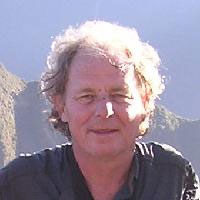Neurosciences
Dr. Wilson was an internationally recognized scientist and an invaluable HSC faculty member in the Department of Neurosciences. He received his BA in Biology from Hunter College at City University of New York and a Diploma in Epigenetics from University of Edinburgh. He then completed a PhD in Molecular Biology at the University of Zurich and postdoctoral training at Rockefeller University. Prior to his arrival at UNM in 1996, he served as a faculty member at the Research Institute of Scripps Clinic in La Jolla, CA.
Dr. Wilson’s seminal contributions to the field of neuroscience include the identification of SNAP-25, which is a critical component of the neurosecretory machinery for synaptic transmission. Utilizing mouse mutants generated in his laboratory, he provided key observations linking presynaptic machinery for neurotransmitter release with human neurocognitive disorders. The impact of his research was exemplified by multiple publications in top-tier scientific journals that included Science, Nature, Nature Neuroscience, PNAS, and Cell, as well as more than 20 consecutive years of NIH research funding. He served on many grant review panels for national and international research funding agencies.
Dr. Wilson trained numerous postdoctoral fellows and graduate students at the HSC in the fields of neurogenetics and molecular neurosciences, and was highly regarded as an exceptional tutor for medical students in the basic neurosciences. He was recipient of the Earl Walker Award for outstanding research in neurosciences conducted at UNM. In addition to his exceptional research, Dr. Wilson’s contributions to HSC include service on the SOM-Research Allocations (Chair), HSC-Science Advisory, and SOM-MD/PhD program steering committees.
Dr. Wilson passed away peacefully on Nov. 14, 2014. His enthusiasm and love of science inspired innumerable students and colleagues alike. He will be truly missed.


Tom and I were Pathology Residents and eventually co-Chief Residents at the University of Pennsylvania (from 1983-1988). During that time, we found ourselves doing post-doctoral research in adjacent labs and sharing the joys, failures and apprehensions those experiences brought. He was extremely bright and loved doing bench science but ultimately realized his interests lay closer to clinically relevant, translational research and service. As a person, he was patient, caring, supportive, ethical and intensely loyal. He had a warm and disarming sense of humor. While our jobs and lives moved us apart, I will fondly remember our friendship. I will miss him a great deal.